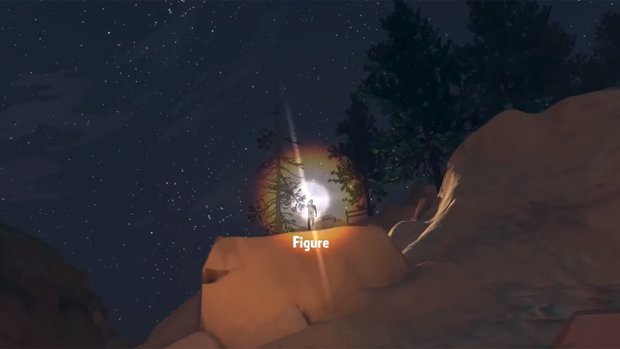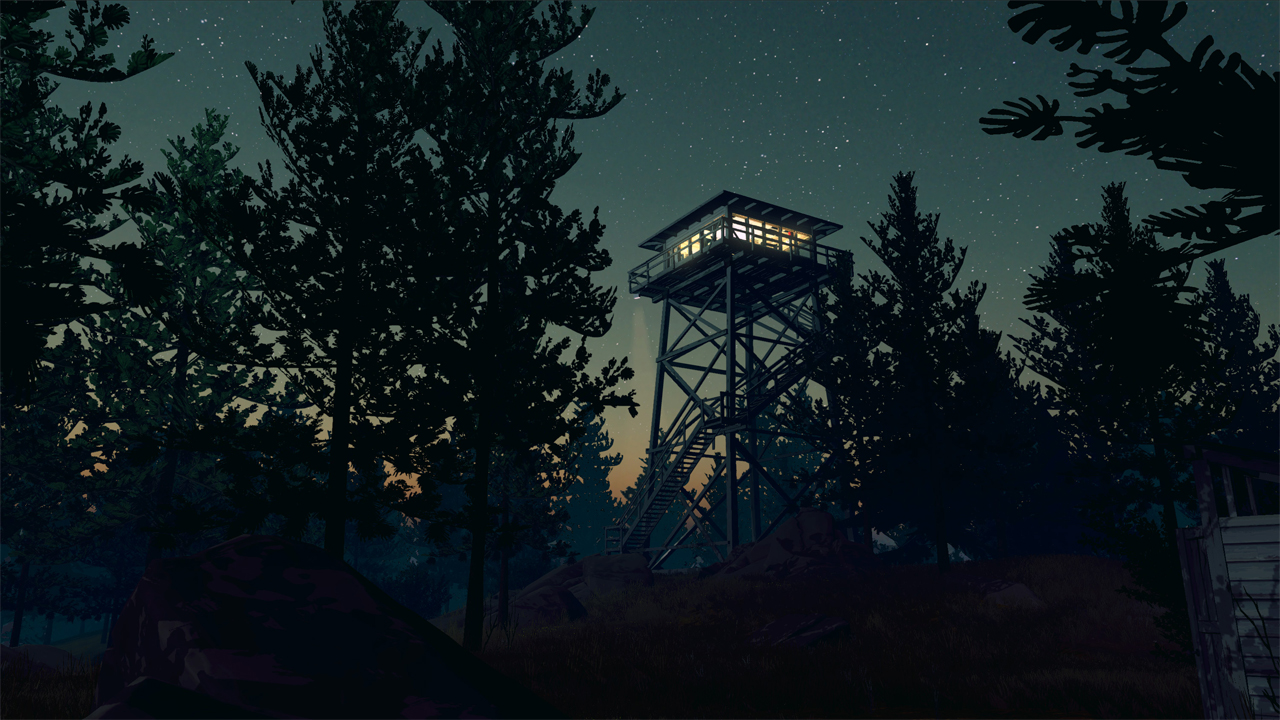A stranger calls in Firewatch, and you won't like what they have to say
Things aren't going so well for you at the beginning of Firewatch. A recent divorcee who has signed on as a fire scout and retreated to the backwoods of Wyoming for some peace (after one too many grief-driven DUIs), you realize things aren't as calm here as you'd expect. The realization comes slowly, as you discover strange antlers in otherwise ordinary supply caches, have run-ins with shadowy hikers that vanish without a word, and hear about scouts before you who couldn't handle the pressure, but not what happened to them. By the time your find your firetower home vandalized and ransacked, it's clear that something malicious is out there, and you have no idea where to start looking for it. But it knows exactly where to find you.

That eerieness is what gives Firewatch its character, filling an otherwise beautiful but dull landscape with a prodding sense of unease. That's not surprising, given where the idea of Firewatch came from - according to lead programmer Will Armstrong, the team drew inspiration from 1970's American thrillers, a genre made famous by films like The Stepford Wives, Invasion of the Bodysnatchers, and When a Stranger Calls. Basically, films where mundane situations (and the more mundane the better) turn terrifying because of malignant forces so strange and mysterious that the hero can't even conceive of them. That puts the protagonist at an alarming disadvantage, aware that they're in danger but unsure what's actually threatening them. Such is the case with Firewatch.
Your only lifeline is Delilah, a fellow scout with a tower on a nearby hill, with whom you keep constant communication through a walkie-talkie. However, even she isn't always a comforting presence - it's clear that she knows more than she's willing to say, and when she does reveal information, it's often ambiguous and oddly unsettling. Missing climbers is just the start.

Though the driving force of Firewatch's unease is being kept appropriately vague until the game's release in February 2016, it's at least clear that the environment is meant to put you off-kilter. You meet other humans, but never get close enough to actually see their faces, so you really only interact with shadows. You're casually informed that the nearest park ranger (and hence help if you might need it) is two days away. Nightfall means complete darkness, and when you're told your smashed window can't be fixed until the next morning at the earliest, it hardly inspires a feeling of security. You can even say so after you return to your vandalized bunk, telling Delilah that you no longer feel safe out here - and you'll know that Firewatch is stoking the coals.
Sign up to the GamesRadar+ Newsletter
Weekly digests, tales from the communities you love, and more
Former Associate Editor at GamesRadar, Ashley is now Lead Writer at Respawn working on Apex Legends. She's a lover of FPS titles, horror games, and stealth games. If you can see her, you're already dead.



